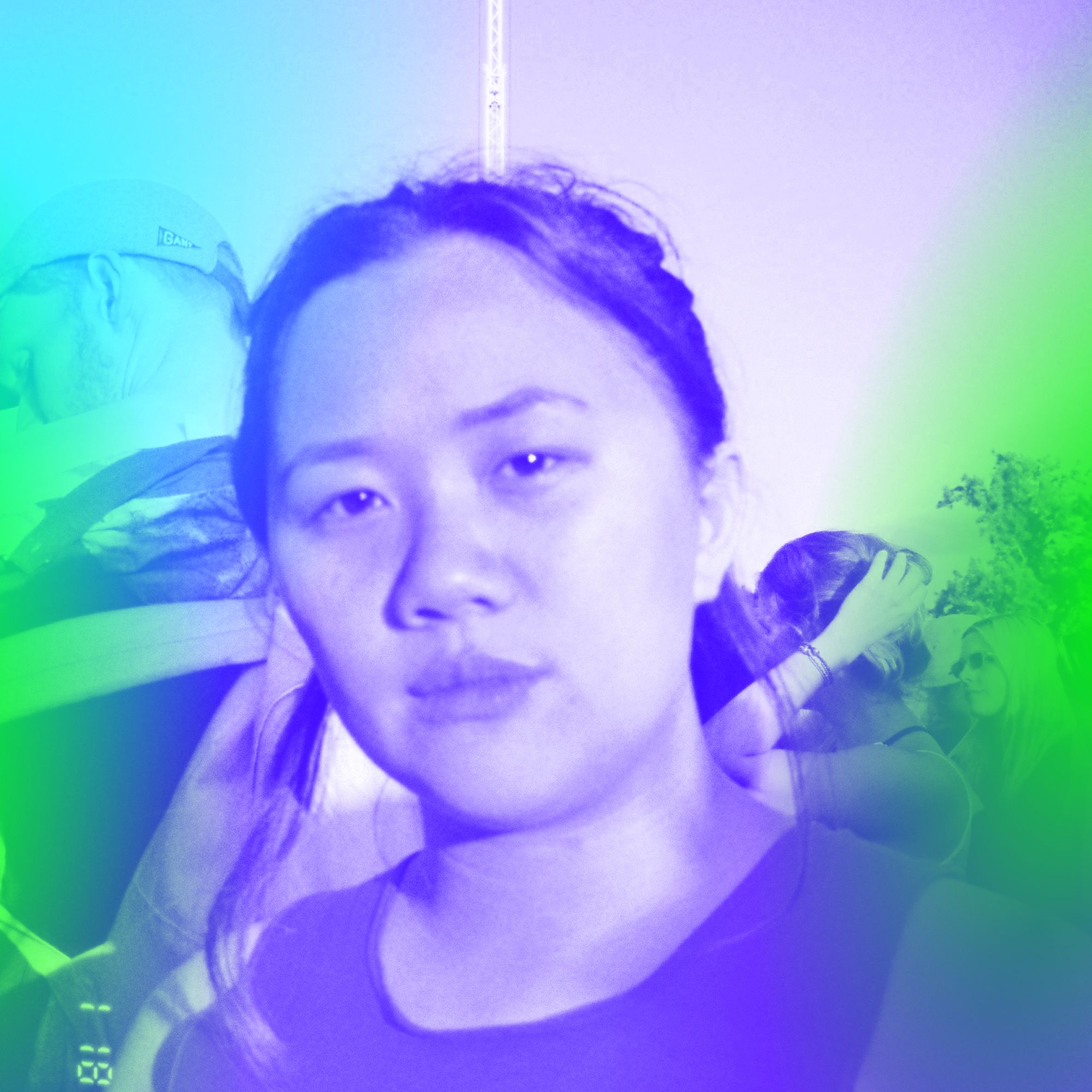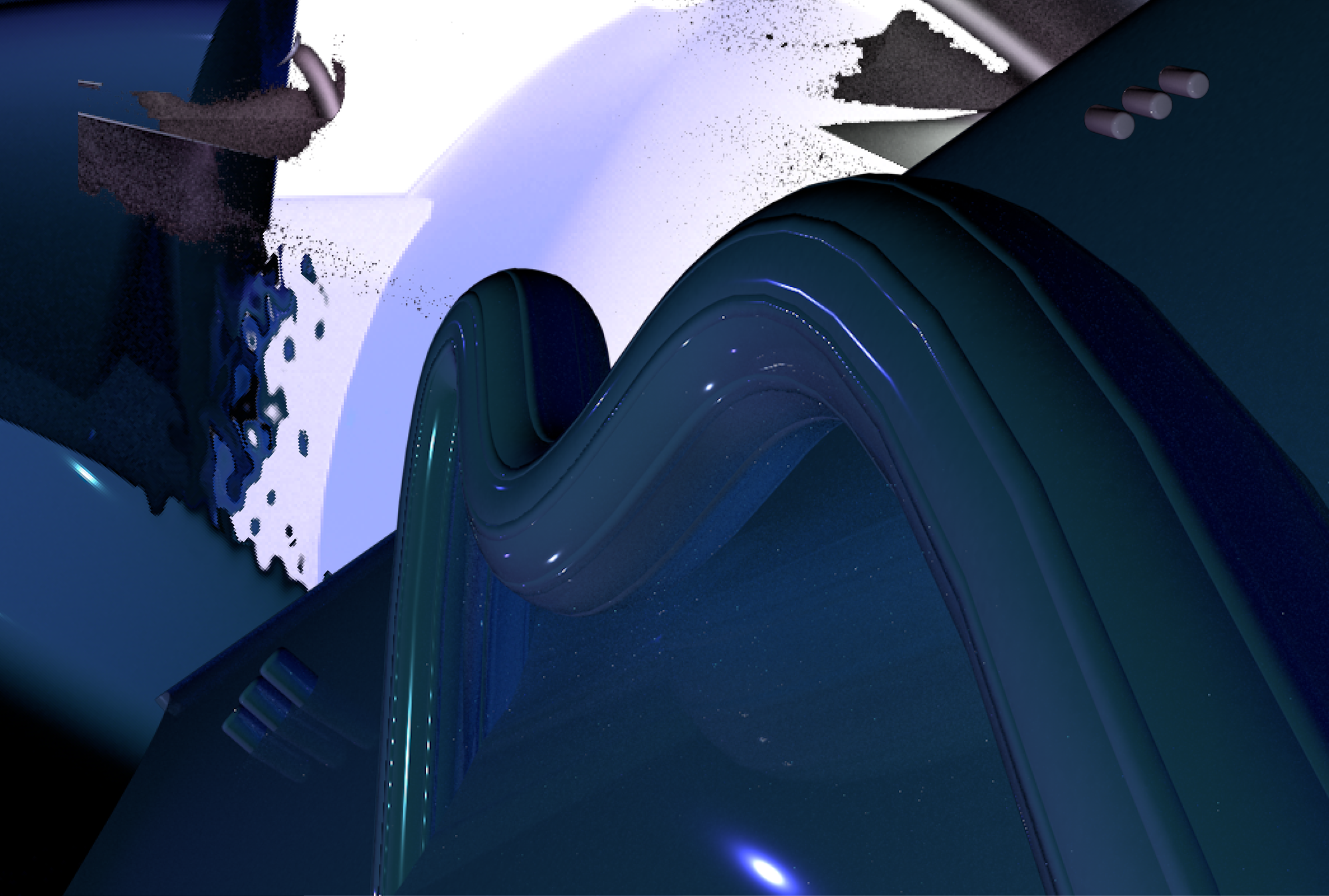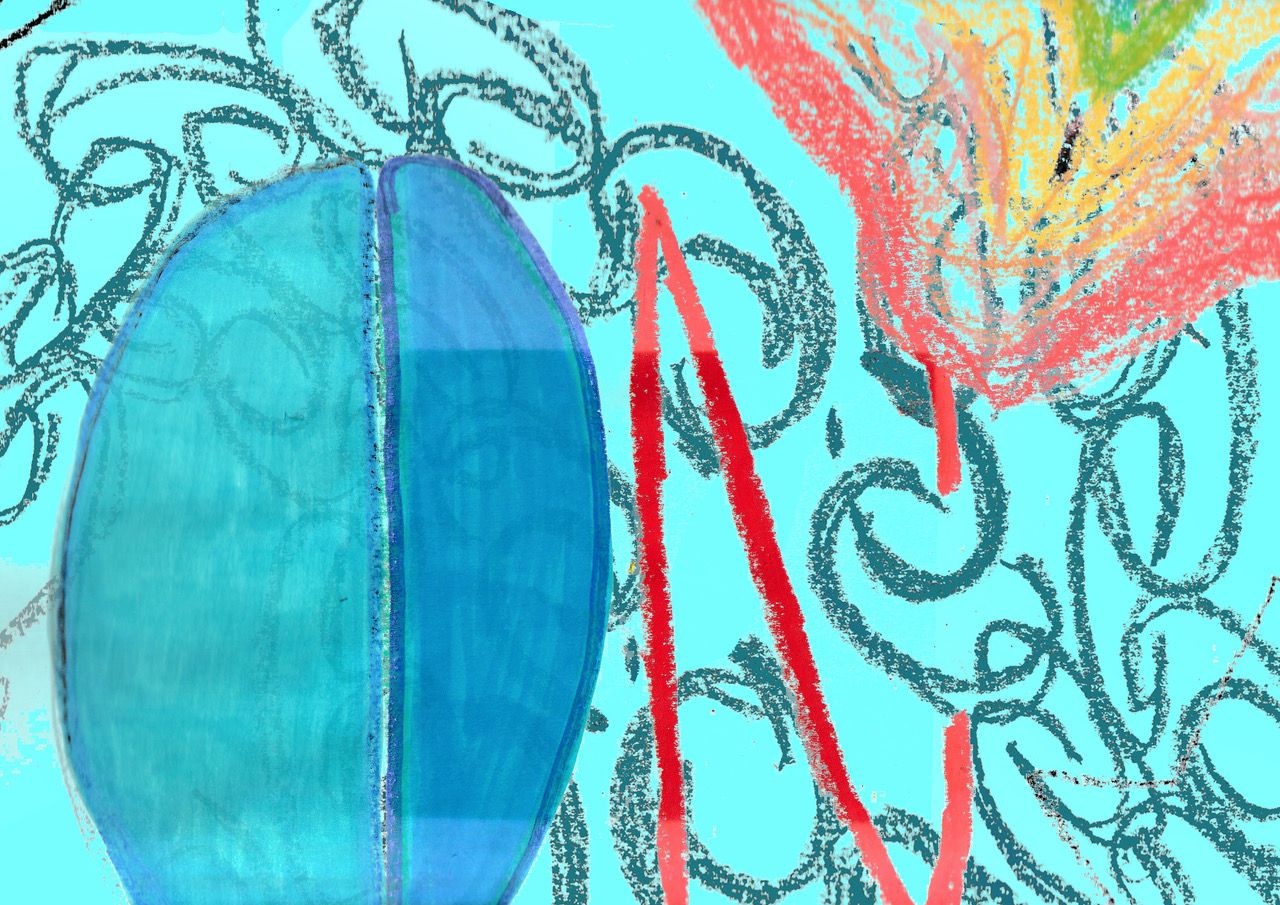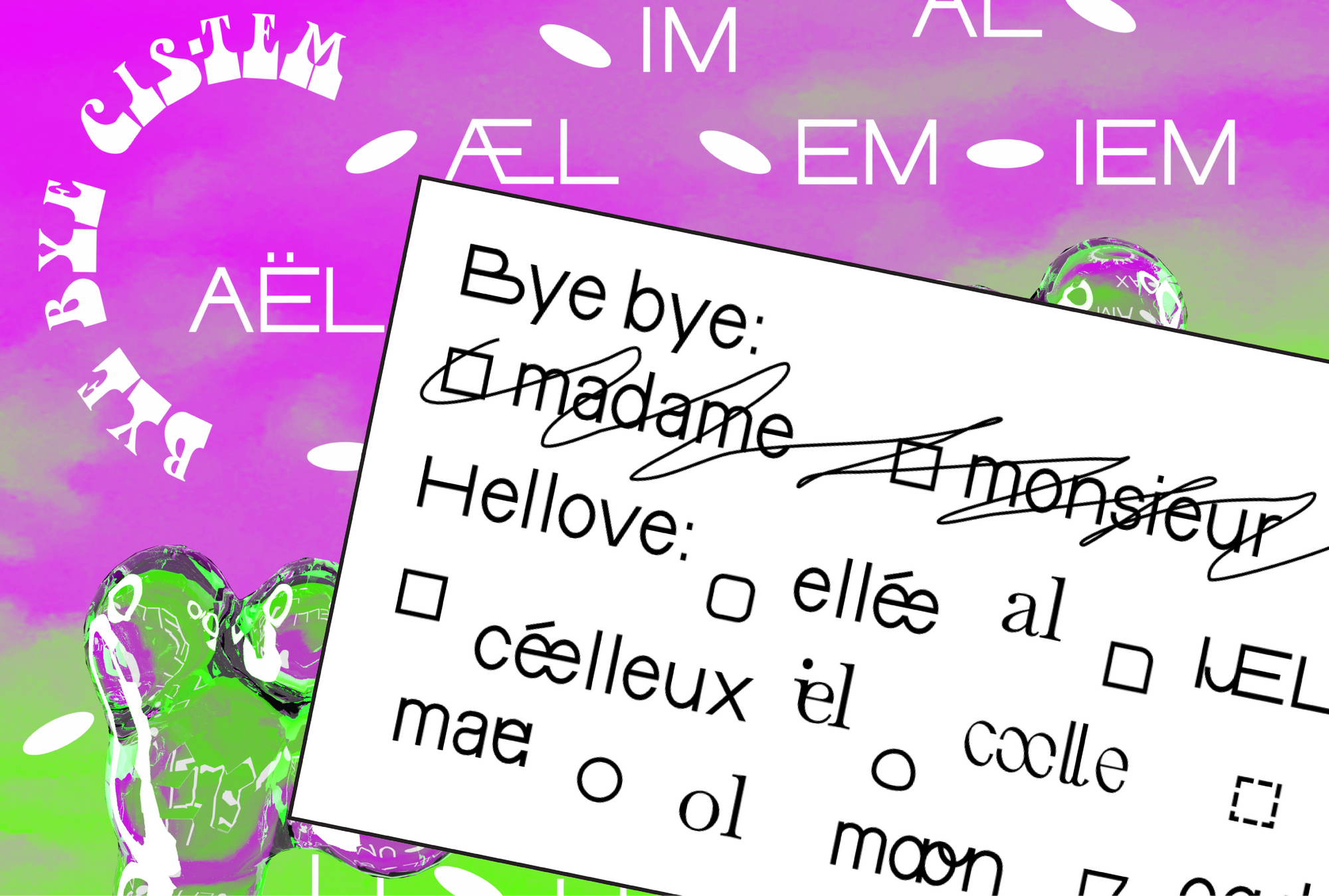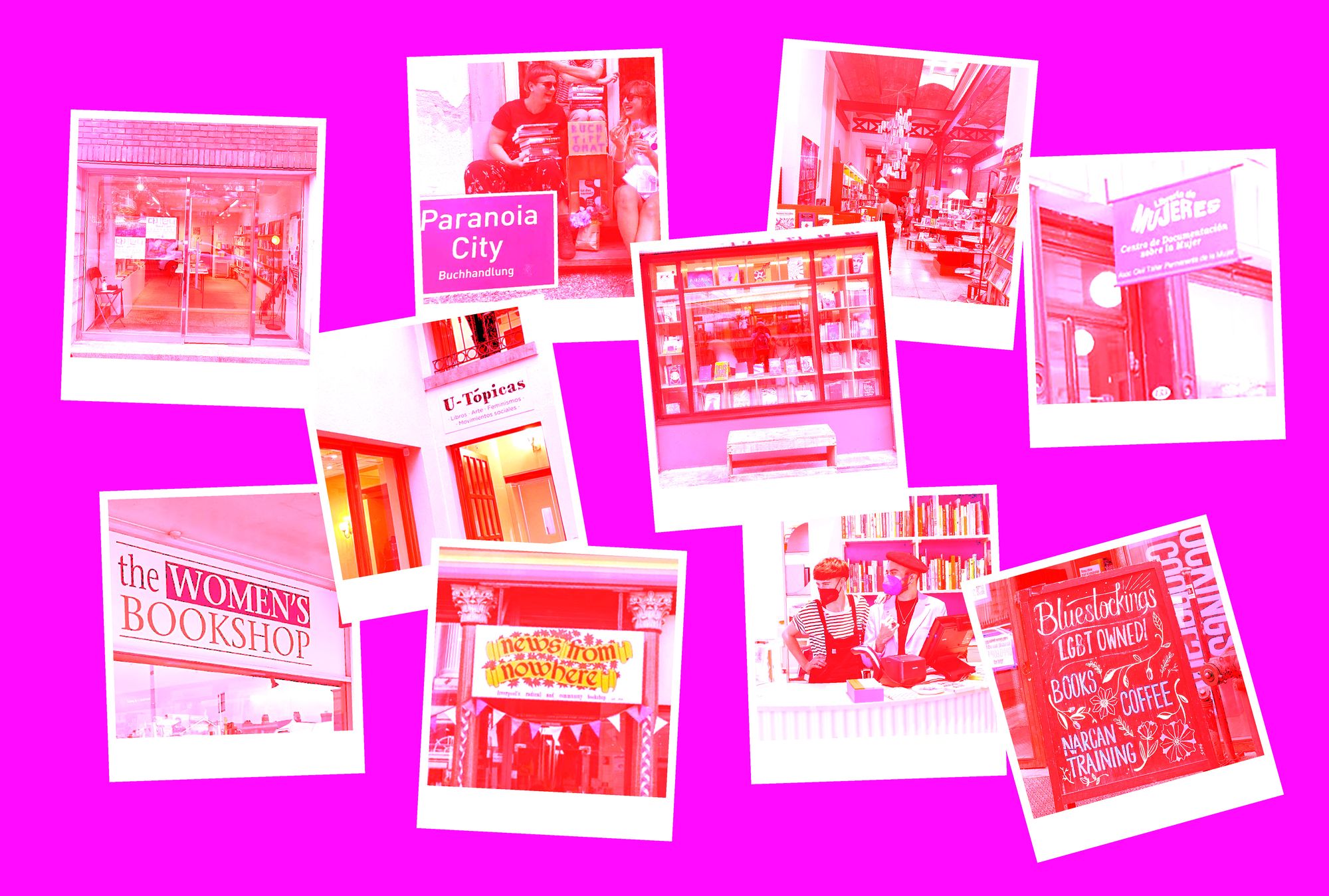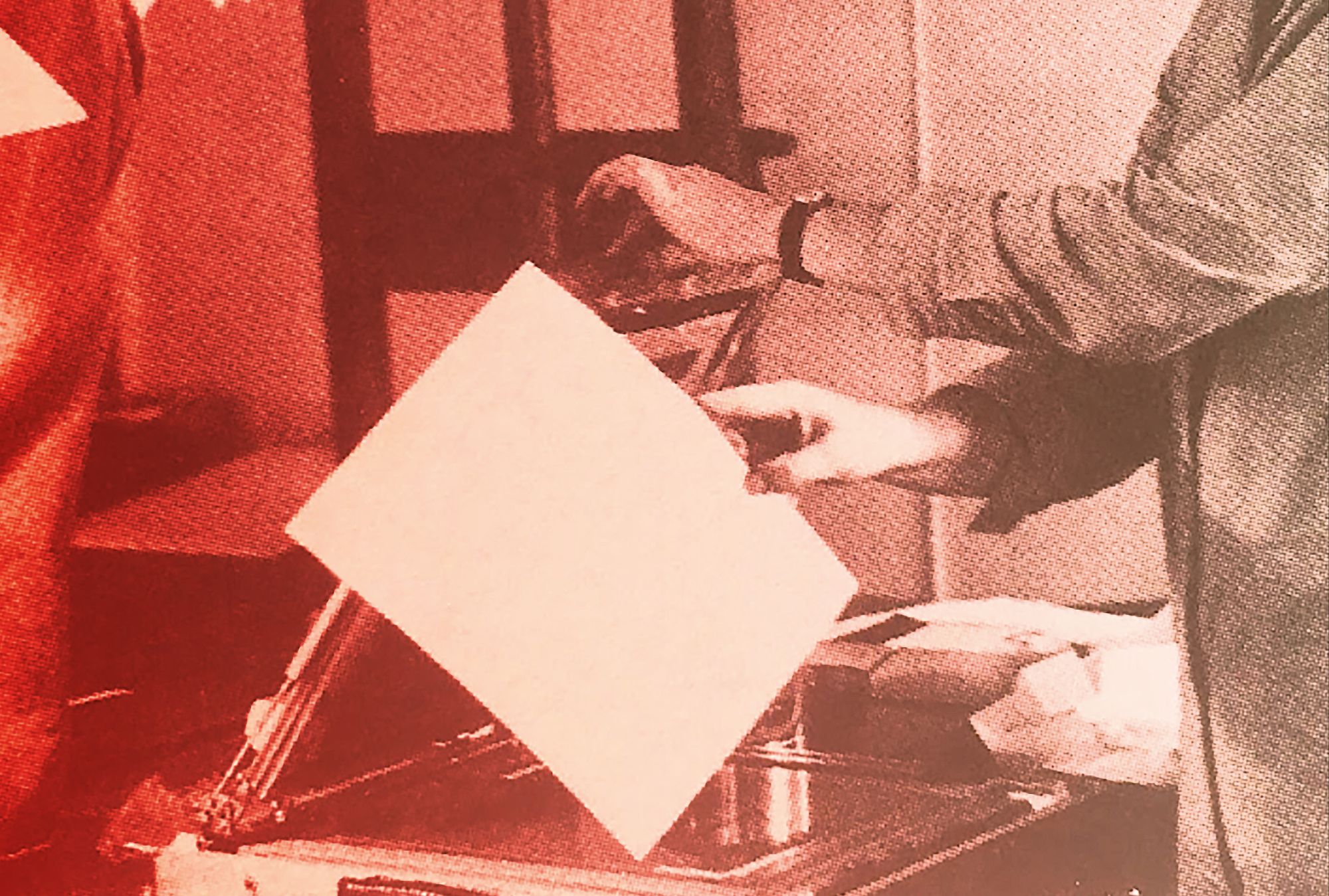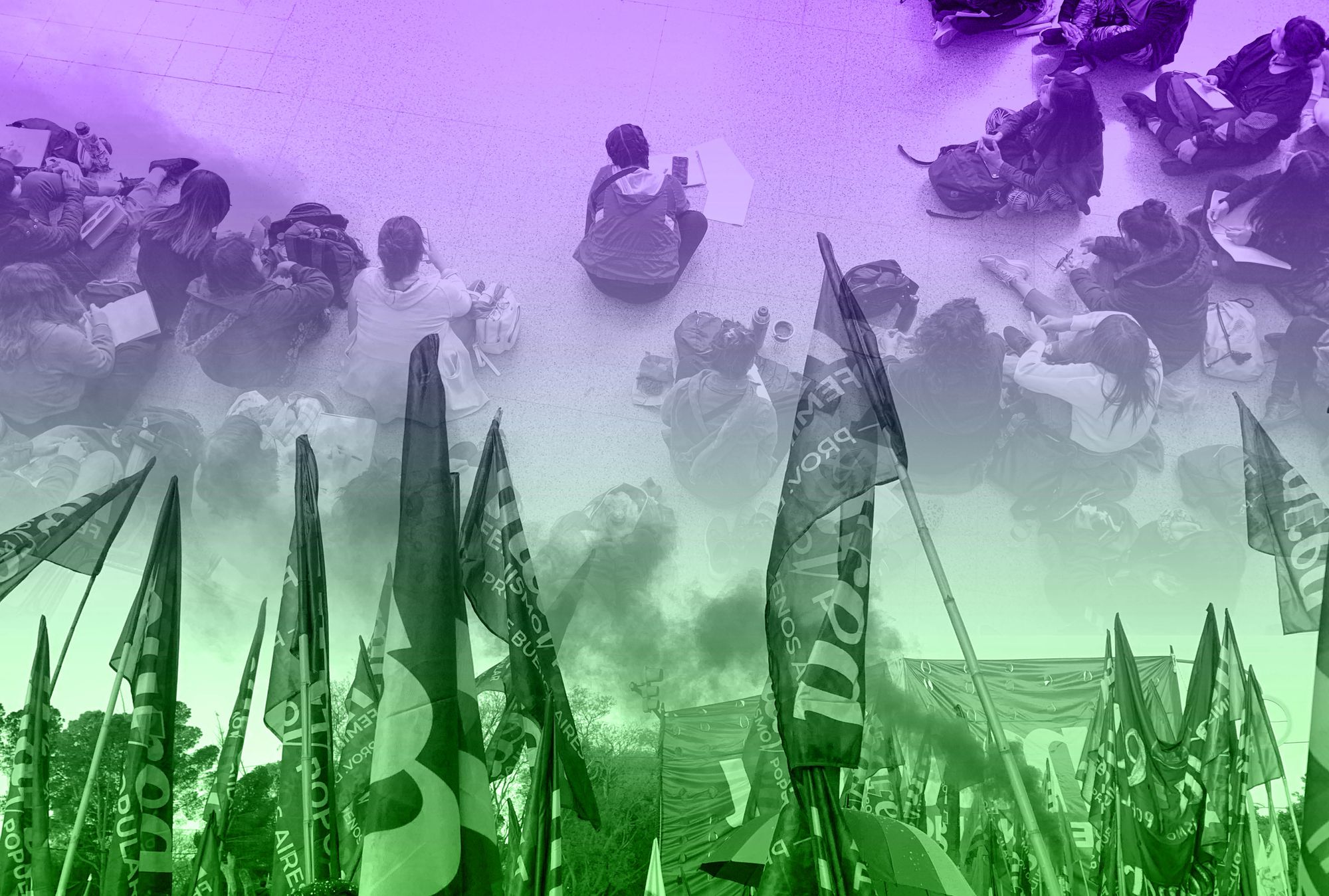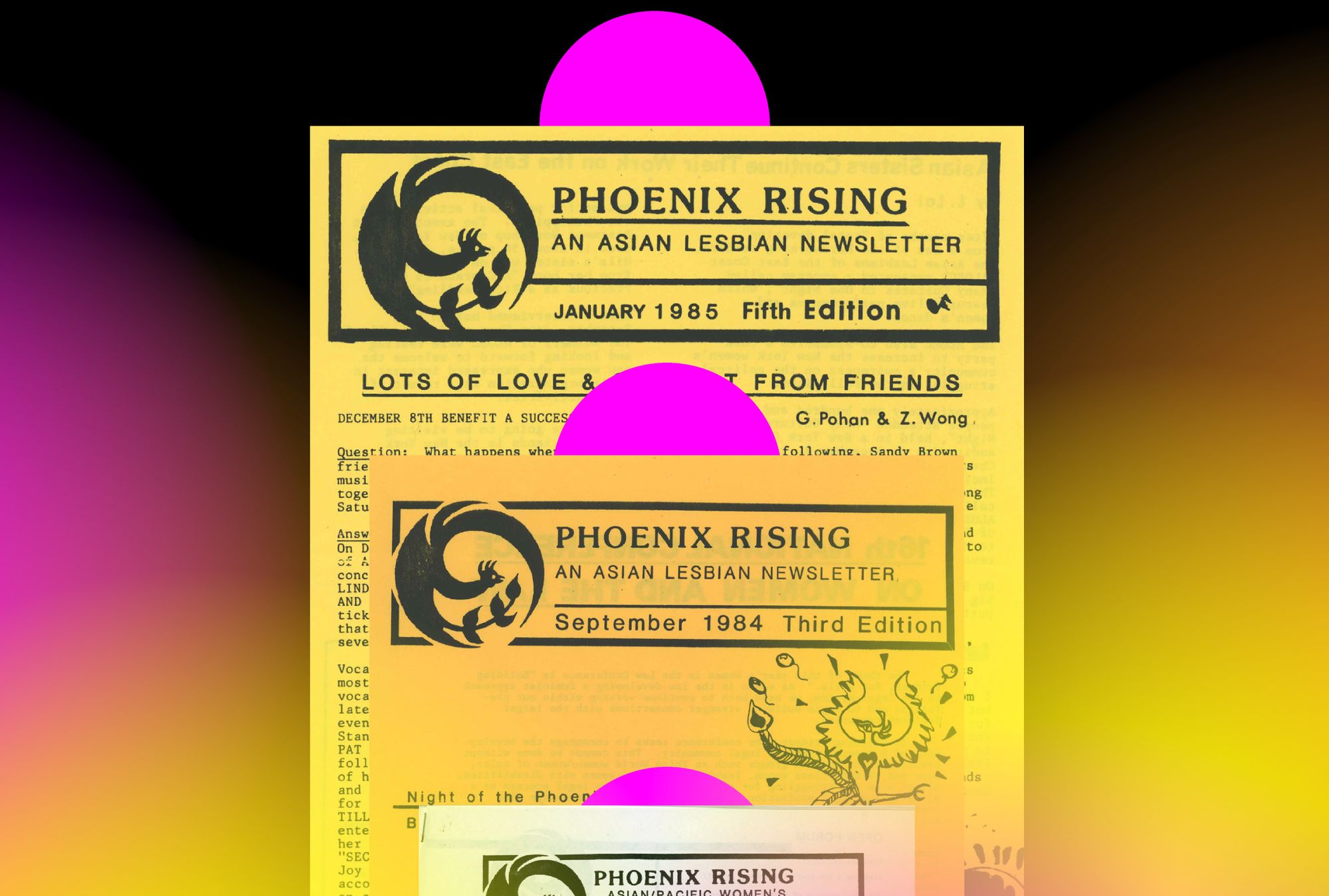
Our pasts inform our present and futures. I, like many other queer people of color, often feel cut off from having no history and thus no place in the present. Narratives that would represent me and my community are too often made invisible—and this omission of legacies stipulates the idea that we are not important.
Something changed for me earlier this year when I discovered Phoenix Rising at The Lesbian Herstory Archives. Prior to that, I wasn’t aware of the vast digital and material archives that exist and are able to retell the histories of people like me or those I love. Seeing narratives and images of people who have shared my experiences in the pages of the Phoenix Rising newsletter, and re-remembering their lives as queer, Asian women, was a testament to the fact that our realities, our ideas, and our situated knowledges are valid and real. It discredits the notion that queerness is a modern or Western/white concept. It affirmed that we have always been here.
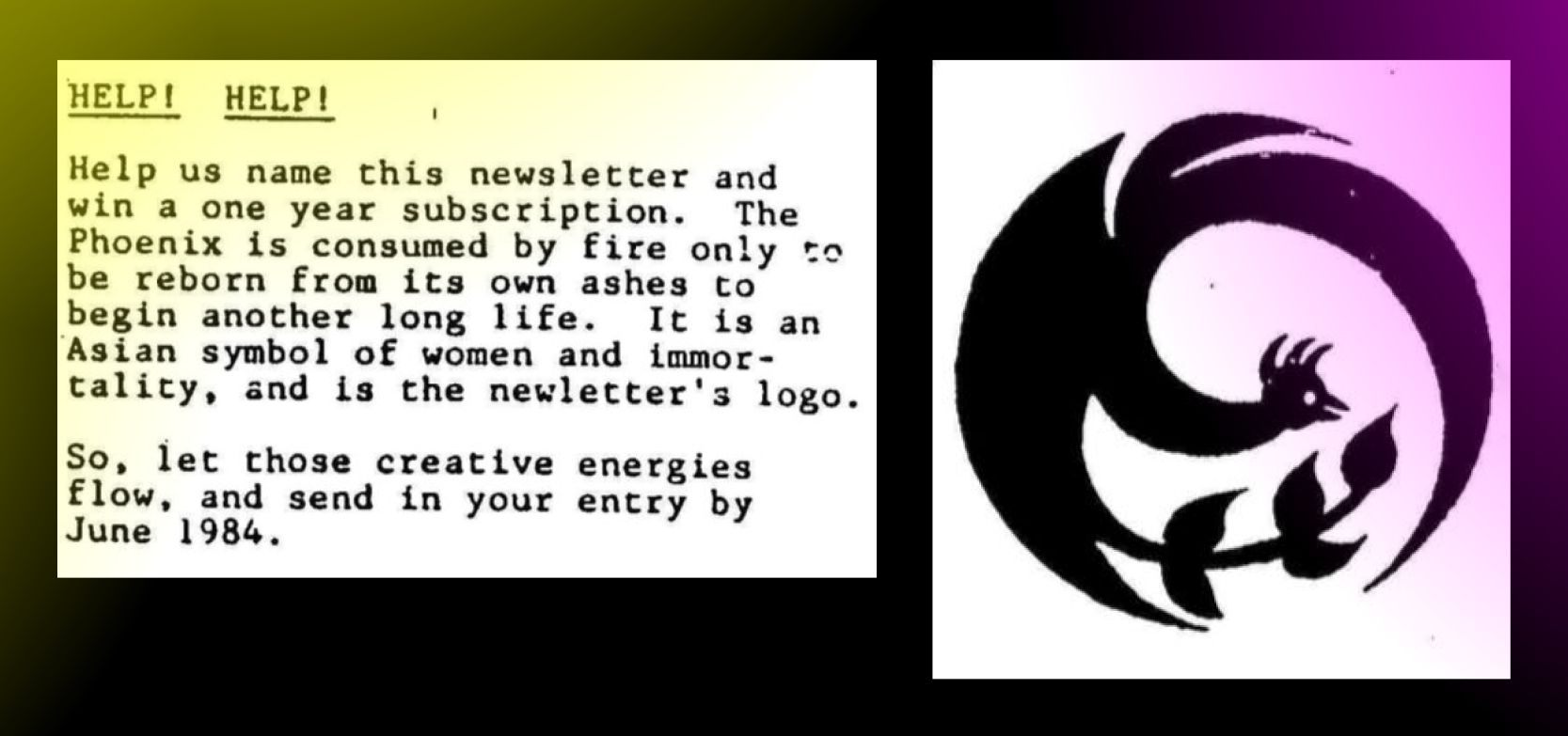
Phoenix Rising grew out of a community of Asian/Pacific lesbians based in San Francisco, founded by Lori Lai, May Lee, Susan Lee, Pam Nishikawa, Gisele Pohan, Marie Shim, Doreena Wong, and Zee Wong. Created in 1984 and spanning a decade, it provided a forum to facilitate networking, communication, documentation, and solidarity within the Asian lesbian community. In conjunction with meet-ups and events, this community carved out their own space to resist tokenism, racism, queermisia, and the resulting feelings of isolation.
In the editor’s letter in 1988, Kitty Tsui and Willy Wilkinson wrote about the importance of self-publishing for the visibility of Asian lesbians “in the past and the present.” Tsui discusses the transformative nature of documentation and how it can challenge the stereotype and culture of Asian women as silent and submissive. “If nobody writes anything down, our history will be lost,” she wrote. “Who will know of our work, our struggles, our victories, our joys, our loves, our lives? Who will remember? Who will care? We must be acknowledged for who we are. Women with a history. Women with a culture. Women with voices. Women who can turn the heritage of silence and oppression into strength, solidarity and sunshine.”
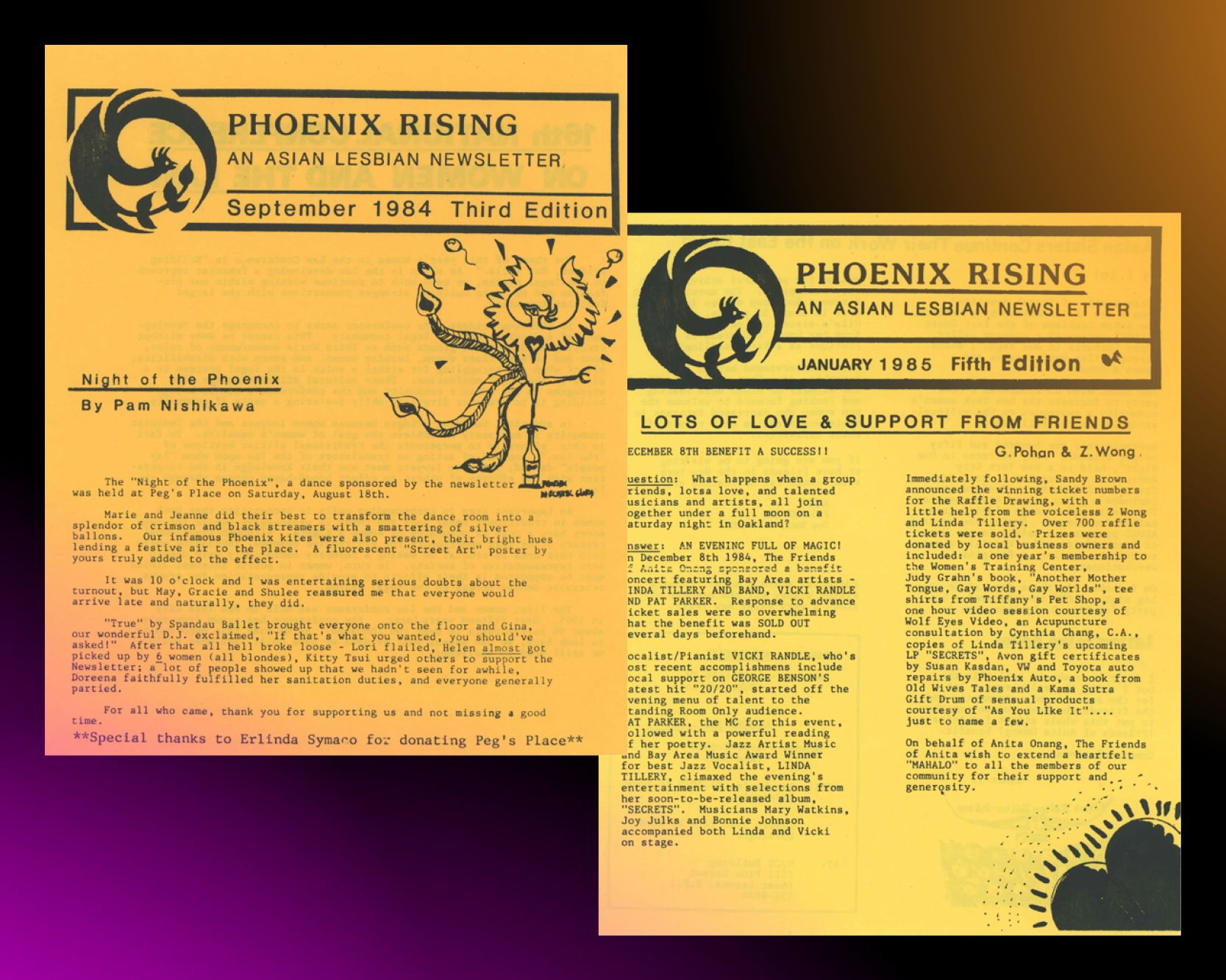
Originally printed in black and white on colored paper, Phoenix Rising was practical in its design. It maintained simultaneously uplifting and grounding narratives. It had a light-hearted nature without shying away from covering important and feminist topics such as domestic violence in the queer community, negotiating BDSM as an Asian lesbian, and the LA riots.
I was drawn to a recurring column—“Ree’s Prediction’s”—because it fused Western astrology, feminist and queer concepts, and Chinese culture’s fascination with luck, fortune, wealth, and prosperity. Astrology plays a big role in contemporary queer culture so to see it written in the 80s—especially predictions contesting the often gendered traditional roles associated with certain planets/signs, and imbued with such frank, queer and feminist language (“butch is supreme,” “femme is supreme,” “patriarchy gets on your nerves”)—was surprising.
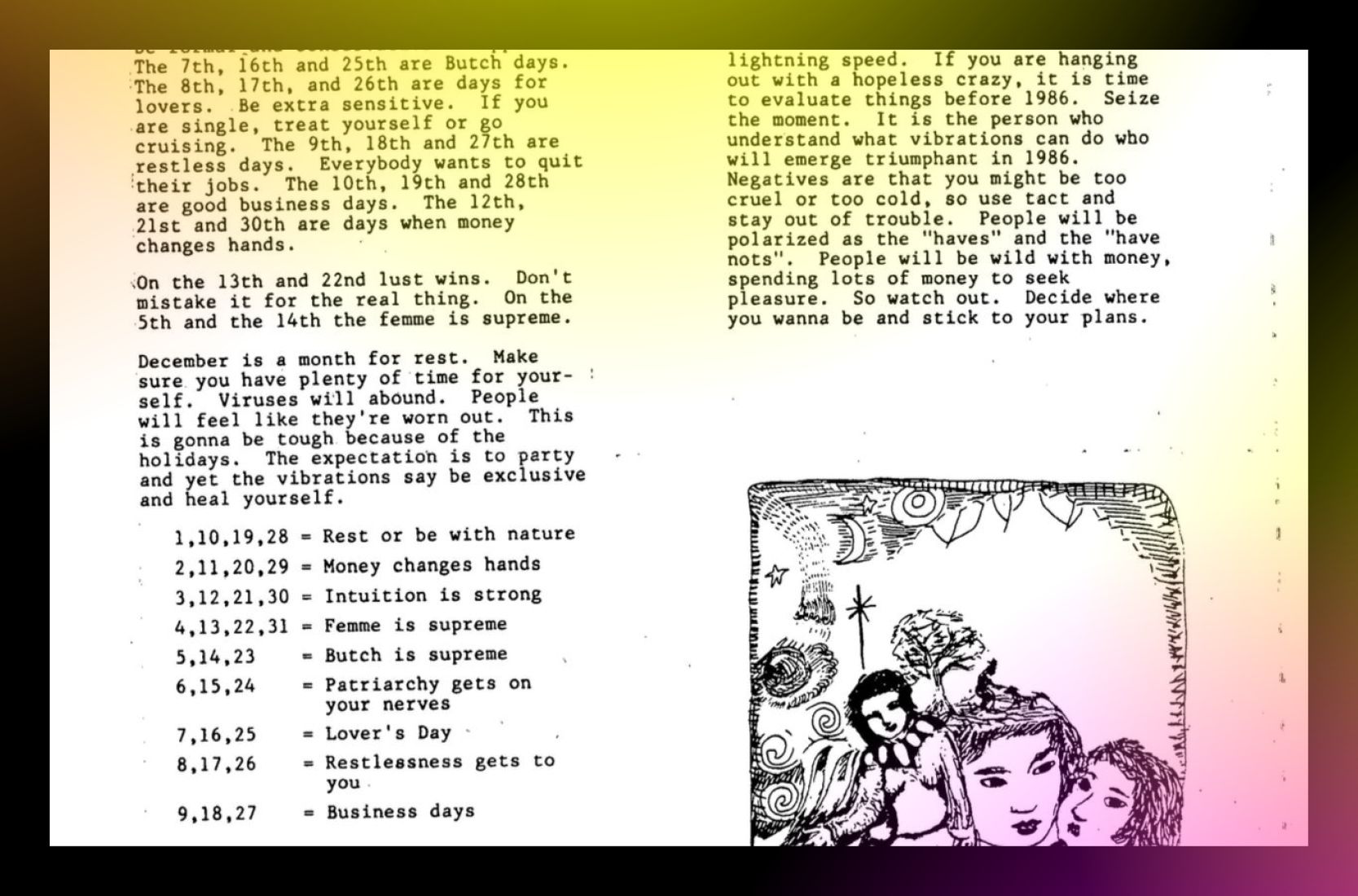
Another highlight was a “No-Nonsense Guide” to local women’s clubs that outlined what percentage of club goers were women of color (“Disco music and women, women, women! No cover charge, too! 80% women of color. The crowd pours in around 10 pm”). While it seems absurd that someone would quantify this, it also spoke to the need for safety for queer women of color.
It attested to the fact that many predominantly white or straight spaces did not cater to queer people of color. By highlighting which women’s clubs were welcoming to them or run by women of color, Phoenix Rising was meeting the needs of that community.
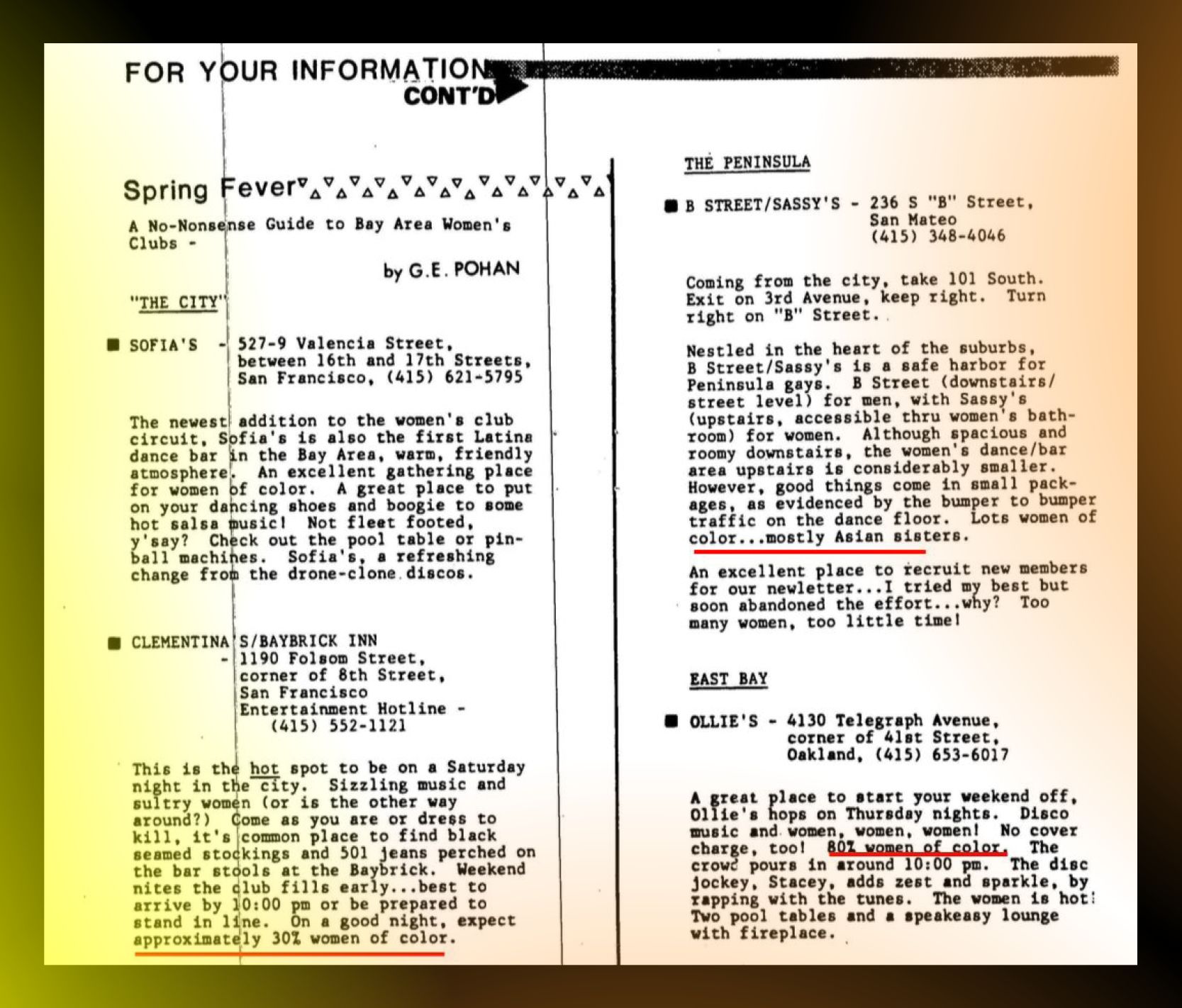
I understood this community through its intimate collaborative nature: that of the creators, informed by readers, and their alliances with other similar groups. These collaborations weren’t made for material or capitalistic gains in the ways we often see now. Instead, they were made to initiate and deepen interpersonal connections, and to facilitate support for lesbian and bisexual Asians, giving them a second chance at a community to belong to and grow from—sustaining what I continue to search for too.
Sophia Yuet See (they/them) is a multimedia artist from London. They’re currently living in Vienna, co-creating a queer cultural association/space “Lazy Life” + making cooking performances with Mai Ling collective.
This text was produced as part of the L.i.P. workshop, and has previously been published in the Feminist Findings zine. Sophia is continuing their research into Phoenix Rising and publishing the results on the purpose-built online archive “From Phoenix Rising.”

